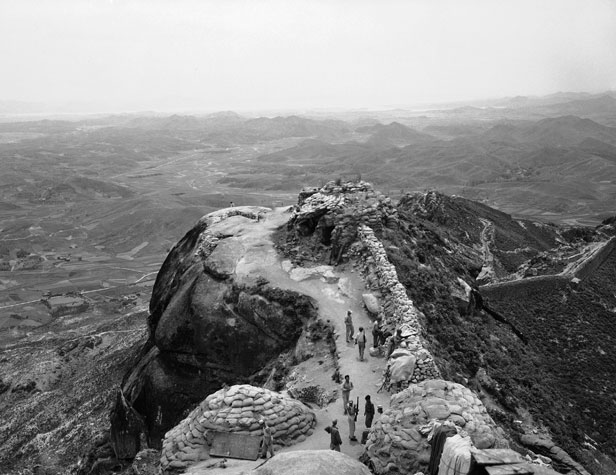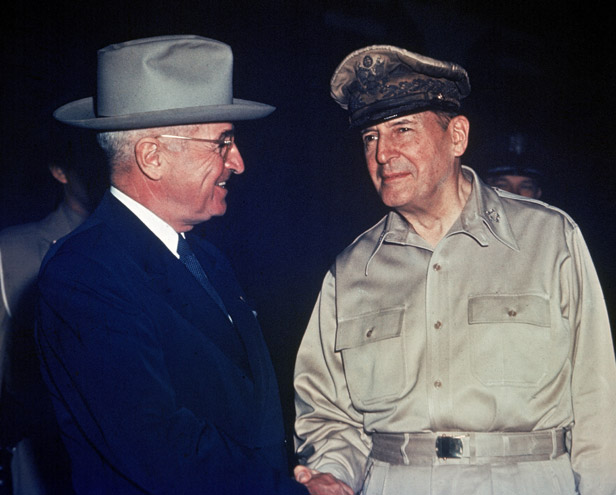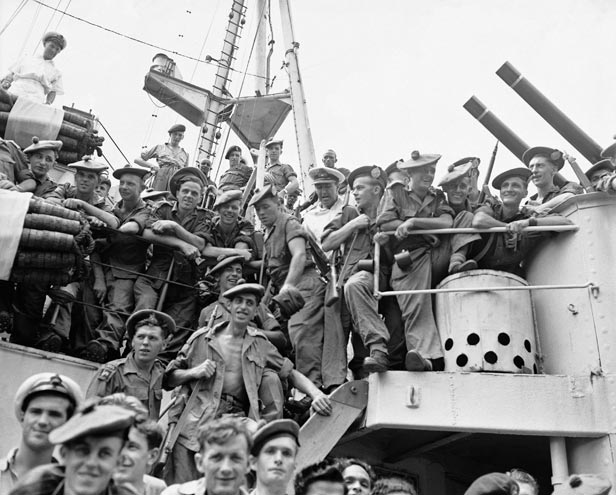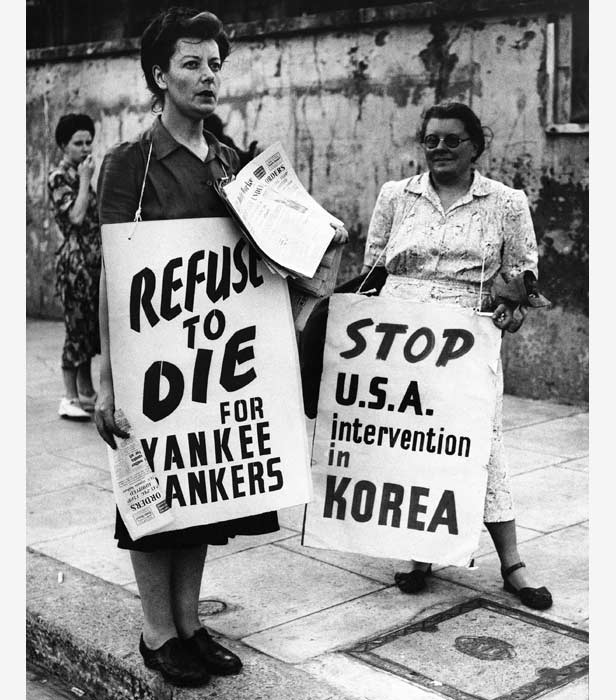June 25, 1950: Invasion North sparks the start of the Korean War
 •
by
•
by Foritos apidonitis
An invasion by communist troops from the north on this day in 1950 heralded the start of the Korean War, and three years of bloody conflict which would cost the lives of as many as a million combatants - as well as an estimated two and a half million civilians.
Japan had ruled Korea from 1910 until the end of the Second World War, when their defeat saw the country divided at the 38th parallel. Two separate governments had been set up, with China and the Soviet Union supporting that in the north, and the US backing the south.
Neither side saw the situation as permanent; tensions escalated after the People’s Revolution in neighbouring China, in which Koreans had fought on the side of the communists. In return, China provided training and equipment to the North Korean military.

North Korean leader Kim Il-sung sought Chinese and Soviet backing for the invasion; Stalin had agreed on the provision that Soviet troops would not take part, for fear of inflaming a war with America. The invasion began at 4am local time at 11 different points along the border.
President Syngman Rhee of South Korea, who had attempted brutally to supress communism in the South since the establishment of its government in 1948, informed the United Nations Commission in Korea (Uncok) that North Korean tanks and armoured cars were on their way to Seoul.
North Korean radio justified the invasion by saying it was in retaliation to several South Korean border incursions in the early hours of the morning. By noon, it was announcing a state of war between the two sides.
As noted in the video above, the United Nations Security Council immediately denounced the invasion and called for a ceasefire. When this was not forthcoming, military intervention was sanctioned two days later.

On hearing by secret communique that Soviet troops would not be deployed, President Harry Truman (above, with US General Douglas MacArthur) – determined to prevent the loss of the South to communism and the incipient threat to Japan – mobilised US forces for what would be a bloody and inconclusive war.
The Korean War – Did you know?
• Japan had made Korea a protectorate after the Russo-Japanese War ended in 1905, then annexed the country in 1910, causing nationalists to flee. An exiled government of the Republic of Korea was formed under Syngman Rhee in China in 1919, but was riven with factions and failed to achieve international recognition.
• During World War II, 2.6 million people became forced labour for Japan. However, nationalist Koreans did fight with the allies against Japan in Burma, while communists under Kim Il-sung did the same in Korea and Manchuria.
• After the invasion began in June 1950, American troops were sent hurriedly from Japan to be joined by thousands more from UN member states. Over 14,000 British troops would take direct part in the conflict.

British troops disembark in Pusan, South Korea on August 29, 1950.
• By September 1950 all but a corner of South Korea, the Pusan peninsula, had been occupied by the North. An amphibious counter-offensive by UN forces that month pushed the invaders far back over their own border, sparking the intervention of Chinese forces.
• These attacks and counter-attacks would see Seoul change hands four times in less than a year, after which a front line was established near the 38th parallel. The rest of the ground war was largely fought from these heavily-fortified positions.
• Despite supremacy by sea and near-supremacy in the air, US forces in the South could not overcome the Chinese-backed Northern armies, and a kind of stalemate ensued. Armistice talks would drag on for two years.

Communist Daily Worker sellers near Marble Arch protest the US action in June 1950.
• An armistice was signed on July 27, 1953 which saw thousands of prisoners of war from both sides exchanged, and a ‘demilitarised zone’ set up across the 38th parallel which remains the most heavily-guarded border in the world..
• No peace treaty was ever signed between the two states, though North Korea claimed victory. On March 30, 2013, North Korea stated that it had entered a "state of war" with South Korea and formally warned of the potential use of nuclear weapons.


Comments
o7
72
b.kj
12158
Voted.
^bouh
comment
Nn
🙂
voted
voted!
Ωραίο άρθρο... Κάτι για το πόλεμο της Κορέας δε λέει;
North Korea is BADDDD
hard voted
test
μετράει σχόλια από διαφορετικά άτομα..ευχαριστώ πάντως
moist
Comment deleted
Ok
ΨΗΦΟΣ
o7
o7
Ψψψ
Χρέος
voted
o7
o7
Vvv
voted
που να βγαλουμε ακρη με τοσα ακυρα σχολια;
o7